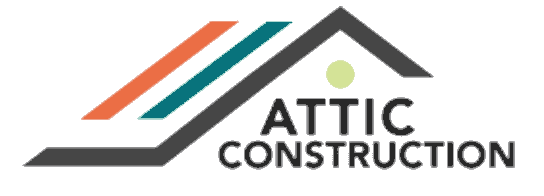If you are selling your home, preventing an escrow holdback for repairs is a key component of a smooth and successful transaction agreement. An escrow holdback can occur for many reasons, but a holdback for repair costs found during a home inspection is one of the most common seen by real estate agents.
Gaining a better understanding of what the most common repairs needed during escrow and the estimated cost can help you avoid a messy escrow process. You can also schedule repairs with insulation companies or contractors ahead of time to prevent delays. Addressing these key obligations beforehand can ensure the escrow process proceeds without a hitch for the buyer and seller, as well as the real estate agent.
Termites, Pests, and Rodents
The presence of termites, pests, or rodents can prove a decisive factor in the success or failure of your home sale. Obvious damage stemming from a pest or rodent infestation should be identified and dealt with before you enter the escrow process to avoid any surprises or additional cost.
The most common areas for rodent infestation are within the unfinished areas of the house, such as your attic or basement. If a rodent infestation is found in any portion of your attic, you should strongly consider using professional services like those offered by Attic Construction, which include attic cleaning and decontamination, rodent-proofing, and and attic insulation installation.
Asbestos or Other Toxic Substances
Old building materials that are toxic such as asbestos or lead paint must be removed or disclosed before the sale of a home. The failure to do so will result in an escrow holdback. Because of these liabilities, it’s a good idea to get a preliminary inspection done. If any toxic substances are identified, you’ll want to have them professionally removed.
Roof Problems
Any problems with your roofing are likely to be identified during the home inspection process. While you might find a buyer willing to overlook a few minor leaks in order to make the purchase, more than likely you’ll be paying for those repairs out of pocket or reducing your selling price to compensate.
Also keep in mind that if you have a roofing leak, you will most likely have some damaged insulation in your attic that will need to be replaced. If you aren’t sure if your insulation has been damaged, schedule an inspection to confirm if you need insulation removal.
Plumbing Problems
Significant problems with your plumbing are likely to become an issue if they are identified during the escrow process. Issues involving your water heater and physical plumbing components like pipes and valves will most likely need to be repaired. Similarly, any issues with your sewer or septic system should be fixed before selling to avoid escrow funds.
Windows and Doors
Old seals, cracked windows, window frames that have expanded due to age, and windows and doors that don’t open and close correctly should all be identified and repaired. These are key areas that a home inspector is surely going to check.
At the same time, this is one area of your house where you may be able to make the necessary repairs yourself if you are handy. It is also a good idea to have your windows cleaned before an inspection, as this can help the inspector make an accurate assessment of the health of the window pane and seals.
Electrical Problems
Home inspectors check core mechanical systems in the house, and your electrical system will be part of that effort. If an inspector finds any issues with your electrical systems, such as out-of-code wiring or questionable wiring at your circuit breaker it is sure to find its way into their report. Repairing electrical problems can be time-consuming and costly, so identifying these problems early is essential to avoiding an escrow holdback.
HVAC and Ductwork
Your heating and cooling system, including any ductwork that distributes air throughout your home, should be in good repair. Be sure to change any filters in your system and that there is no rust in your cooling system. Your ductwork should be free of any debris and in good working condition. Any rodents or pests found in ducting may require additional professional cleaning services.
Final Thoughts
Avoiding an escrow holdback for repairs may require some preparation before the escrow process. It’s a good idea to have key areas in your home inspected before you put up your house for sale. This will allow you to identify and fix some of the most common repairs that pop up during the inspection process.
Although there is no definitive guide to what you should do to prepare for escrow, there are some escrow holdback guidelines that are helpful. Ensure that your home is structurally sound and that all of the core systems of the home, including plumbing, HVAC, and electrical are in good working order.
Any evidence of rodent or pest problems should be dealt with before escrow. Since rodents often take up residence in unfinished spaces like your attic, you’ll also need to inspect the health of your home’s insulation. Insulation can also be damaged from a leaky roof, which happens to be one of the most common sources of escrow holdback.
Any issues identified by your escrow agent in your preliminary inspection that are likely to cause a problem during escrow should be fixed beforehand to avoid any escrow holdback. If you have a rodent problem, damaged insulation, or a messy attic, contact Attic Construction today. Our professional staff can help get your attic, insulation, and ductwork in good working order so that your escrow process progresses smoothly.
Sources:
- https://www.zillow.com/sellers-guide/bad-home-inspection-for-sellers/
- https://www.homeinspector.org/homeinspectionnews/home-inspectors-checklist-for-2018.2-8-2018.2025/details/story
- https://themortgagereports.com/37715/home-inspection-checklist-what-to-expect-on-inspection-day

